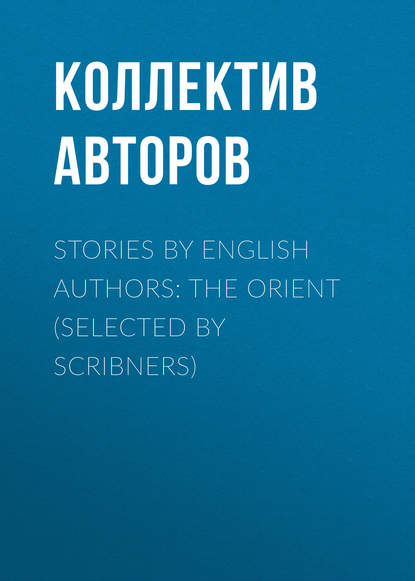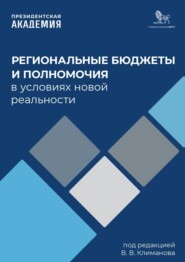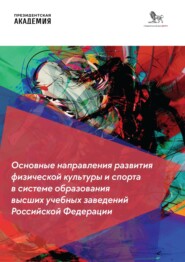По всем вопросам обращайтесь на: info@litportal.ru
(©) 2003-2024.
✖
Stories by English Authors: The Orient (Selected by Scribners)
Настройки чтения
Размер шрифта
Высота строк
Поля
Haunted by the thought of what had passed, she wandered on to the veranda of her archery pavilion, and while gazing half unconsciously heavenward her eyes were attracted by a hawk which flew past and alighted on a tree beyond the boundary-wall, and in front of the study she had lately left. In a restless and thoughtless mood, she took up her bow and arrow, and with unerring aim compassed the death of her victim. No sooner, however, had the hawk fallen, carrying the arrow with it, than she remembered that her name was inscribed on the shaft, and fearing lest it should be found by either Wei or Tu, she hurried round in the hope of recovering it. But she was too late. On approaching the study, she found Tu in the garden in front, examining the bird and arrow.
“Look,” he said, as he saw her coming, “what a good shot some one has made! and whoever it is, he has a due appreciation of his own skill. Listen to these lines which are scraped on the arrow:
‘Do not lightly draw your bow;
But if you must, bring down your foe.’”
Jasmine was glad enough to find that he had not discovered her name, and eagerly exchanged banter with him on the conceit of the owner of the arrow. But before she could recover it, Wei, who had heard the talking and laughter, joined them, and took the arrow out of Tu’s hand to examine it. Just at that moment a messenger came to summon Tu to his father’s presence, and he had no sooner gone than Wei exclaimed:
“But see, here is the name of the mysterious owner of the arrow, and, as I live, it is a girl’s name – Jasmine! Who, among the goddesses of heaven can Jasmine be?”
“Oh, I will take the arrow then,” said Jasmine. “It must belong to my sister. That is her name.”
“I did not know that you had a sister,” said Wei.
“Oh yes, I have,” answered Jasmine, quite forgetful of the celebrated dictum of Confucius: “Be truthful.” “She is just one year younger than I am,” she added, thinking it well to be circumstantial.
“Why have you never mentioned her?” asked Wei, with animation. “What is she like? Is she anything like you?”
“She is the very image of me.”
“What! In height and features and ways?”
“The very image, so that people have often said that if we changed clothes each might pass for the other.”
“What a good-looking girl she must be!” said Wei, laughing. “But, seriously, I have not, as you know, yet set up a household; and if your sister has not received bridal presents, I would beg to be allowed to invite her to enter my lowly habitation. What does my elder brother say to my proposal?”
“I don’t know what my sister would feel about it,” said Jasmine. “I would never answer for a girl, if I lived to be as old as the God of Longevity.”
“Will you find out for me?”
“Certainly I will. But remember, not a word must be mentioned on the subject to my father, or, in fact, to anybody, until I give you leave.”
“So long as my elder brother will undertake for me, I will promise anything,” said the delighted Wei. “I already feel as though I were nine-tenths of the way to the abode of the phenix. Take this box of precious ointment to your sister as an earnest of my intentions, and I will keep the arrow as a token from her until she demands its return. I feel inclined to express myself in verse. May I?”
“By all means,” said Jasmine, laughing.
Thus encouraged, Wei improvised as follows:
“‘T was sung of old that Lofu had no mate,
Though Che was willing; for no word was said.
At last an arrow like a herald came,
And now an honoured brother lends his aid.”
“Excellent,” said Jasmine, laughing. “With such a poetic gift as you possess, you certainly deserve a better fate than befell Lofu.”
From this day the idea of marrying Jasmine’s sister possessed the soul of Wei. But not a word did he say to Tu on the matter, for he was conscious that, as Tu was the first to pick up the arrow through which he had become acquainted with the existence of Jasmine’s sister, his friend might possibly lay a claim to her hand. To Jasmine also the subject was a most absorbing one. She felt that she was becoming most unpleasantly involved in a risky matter, and that, if the time should ever come when she should have to make an explanation, she might in honour be compelled to marry Wei – a prospect which filled her with dismay. The turn events had taken had made her analyse her feelings more than she had ever done before, and the process made her doubly conscious of the depth of her affection for Tu. “A horse,” she said to herself, “cannot carry two saddles, and a woman cannot marry more than one man.” Wise as this saw was, it did not help her out of her difficulty, and she turned to the chapter of accidents, and determined to trust to time, that old disposer of events, to settle the matter. But Wei was inclined to be impatient, and Jasmine was obliged to resort to more of those departures from truth which circumstances had forced upon this generally very upright young lady.
“I have consulted my father on the subject,” she said to the expectant Wei, “and he insists on your waiting until the autumn examination is over. He has every confidence that you will then take your M.A. degree, and your marriage will, he hopes, put the coping-stone on your happiness and honour.”
“That is all very well,” said Wei; “but autumn is a long time hence, and how do I know that your sister may not change her mind?”
“Has not your younger brother undertaken to look after your interests, and cannot you trust him to do his best on your behalf?”
“I can trust my elder brother with anything in the world. It is your sister that I am afraid of,” said Wei. “But since you will undertake for her – ”
“No, no,” said Jasmine, laughing, “I did not say that I would undertake for her. A man who answers for a woman deserves to have ‘fool’ written on his forehead.”
“Well, at all events, I will be content to leave the matter in your hands,” said Wei.
At last the time of the autumn examination drew near, and Tu and Wei made preparations for their departure to the provincial capital. They were both bitterly disappointed when Jasmine announced that she was not going up that time. This determination was the result of a conference with her father. She had pointed out to the colonel that if she passed and took her M.A. degree she might be called upon to take office at any time, and that then she would be compelled to confess her sex; and as she was by no means disposed to give up the freedom which her doublet and hose conferred upon her, it was agreed between them that she should plead illness and not go up. Her two friends, therefore, went alone, and brilliant success attended their venture. They both passed with honours, and returned to Mienchu to receive the congratulations of their friends. Jasmine’s delight was very genuine, more especially as regarded Tu, and the first evening was spent by the three students in joyous converse and in confident anticipation of the future. As Jasmine took leave of the two new M.A.‘s, Wei followed her to the outer door and whispered at parting:
“I am coming to-morrow to make my formal proposal to your sister.”
Jasmine had no time to answer, but went home full of anxious and disturbed thoughts, which were destined to take a more tragic turn than she had ever anticipated even in her most gloomy moments. The same cruel fate had also decreed that Wei’s proposal was to be suspended, like Buddha, between heaven and earth. The blow fell upon him when he was attiring himself in the garments of his new degree, in preparation for his visit. He was in the act of tying his sash and appending it to his purse and trinkets, when Jasmine burst into the young men’s study, looking deadly pale and bearing traces of acute mental distress on her usually bright and joyous countenance.
“What is the matter?” cried Tu, with almost as much agitation as was shown by Jasmine. “Tell me what has happened.”
“Oh, my father, my poor father!” sobbed Jasmine.
“What is the matter with your father? He is not dead, is he?” cried the young men in one breath.
“No, it is not so bad as that,” said Jasmine, “but a great and bitter misfortune has come upon us. As you know, some time ago my father had a quarrel with the military intendant, and that horrid man has, out of spite, brought charges against him for which he was carried off this morning to prison.”
The statement of her misery and the shame involved in it completely unnerved poor Jasmine, who, true to her inner sex, burst into tears and rocked herself to and fro in her grief. Tu and Wei, on their knees before her, tried to pour in words of consolation. With a lack of reason which might be excused under the circumstances, they vowed that her father was innocent before they knew the nature of the charges against him, and they pledged themselves to rest neither day nor night until they had rescued him from his difficulty. When, under the influence of their genuine sympathy, Jasmine recovered some composure, Tu begged her to tell him of what her father was accused.
“The villain,” said Jasmine, through her tears, “has dared to say that my father has made use of government taxes, has taken bribes for recommending men for promotion, has appropriated the soldiers’ ration-money, and has been in league with highwaymen.”
“Is it possible?” said Tu, who was rather staggered by this long catalogue of crimes. “I should not have believed that any one could have ventured to have charged your honoured father with such things, least of all the intendant, who is notoriously possessed of an itching palm. But I tell you what we can do at once. Wei and I, being M.A.‘s, have a right to call on the prefect, and it will be a real pleasure to us to exercise our new privilege for the first time in your service. We will urge him to inquire into the matter, and I cannot doubt that he will at once quash the proceedings.”
Unhappily, Tu’s hopes were not realised. The prefect was very civil, but pointed out that, since a higher court had ordered the arrest of the colonel, he was powerless to interfere in the matter. Many were the consultations held by the three friends, and much personal relief Jasmine got from the support and sympathy of the young men. One hope yet remained to her: Tu and Wei were about to go to Peking for their doctor’s degrees, and if they passed they might be able to bring such influence to bear as would secure the release of her father.
“Let not the ‘young noble’ distress himself overmuch,” said Wei to her, with some importance. “This affair will be engraven on our hearts and minds, and if we take our degrees we will use our utmost exertions to wipe away the injustice which has been done your father.”
“Unhappily,” said the more practical Tu, “it is too plain that the examining magistrates are all in league to ruin him. But let our elder brother remain quietly at home, doing all he can to collect evidence in the colonel’s favour, while we will do our best at the capital. If things turn out well with us there, our elder brother had better follow at once to assist us with his advice.”
Before the friends parted, Wei, whose own affairs were always his first consideration, took an opportunity of whispering to Jasmine, “Don’t forget your honoured sister’s promise, I beseech you. Whether we succeed or not, I shall ask for her in marriage on my return.”
“Under present circumstances, we must no longer consider the engagement,” said Jasmine, shocked at his introducing the subject at such a moment, “and the best thing that you can do is to forget all about it.”
The moment for the departure of the young men had come, and they had no time to say more. With bitter tears, the two youths took leave of the weeping Jasmine, who, as their carts disappeared in the distance, felt for the first time what it was to be alone in misery. She saw little of her stepmother in those days. That poor lady made herself so ill with unrestrained grief that she was quite incapable of rendering either help or advice. Fortunately the officials showed no disposition to proceed with the indictment, and by the judicious use of the money at her command Jasmine induced the prison authorities to make her father’s confinement as little irksome as possible. She was allowed to see him at almost any time, and on one occasion, when he was enjoying her presence as in his prosperous days he had never expected to do, he remarked:
“Since the officials are not proceeding with the business, I think my best plan will be to send a petition to Peking asking the Board of War to acquit me. But my difficulty is that I have no one whom I can send to look after the business.”
“Let me go,” said Jasmine. “When Tu and Wei were leaving, they begged me to follow them to consult as to the best means of helping you, and with them to depend on I have nothing to fear.”
“I quite believe that you are as capable of managing the matter as anybody,” said her father, admiringly; “but Peking is a long way off, and I cannot bear to think of the things which might happen to you on the road.”
“From all time,” answered Jasmine, “it has been considered the duty of a daughter to risk anything in the service of her father; and though the way is long, I shall have weapons to defend myself with against injury, and a clear conscience with which to answer any interrogatories which may be put to me. Besides, I will take our messenger, ‘The Dragon,’ and his wife with me. I will make her dress as a man – what fun it will be to see Mrs. Dragon’s portly form in trousers, and gabardine! When that transformation is made, we shall be a party of three men. So, you see, she and I will have a man to protect us, and I shall have a woman to wait upon me; and if such a gallant company cannot travel from this to Peking in safety, I’ll forswear boots and trousers and will retire into the harem for ever.”
“Look,” he said, as he saw her coming, “what a good shot some one has made! and whoever it is, he has a due appreciation of his own skill. Listen to these lines which are scraped on the arrow:
‘Do not lightly draw your bow;
But if you must, bring down your foe.’”
Jasmine was glad enough to find that he had not discovered her name, and eagerly exchanged banter with him on the conceit of the owner of the arrow. But before she could recover it, Wei, who had heard the talking and laughter, joined them, and took the arrow out of Tu’s hand to examine it. Just at that moment a messenger came to summon Tu to his father’s presence, and he had no sooner gone than Wei exclaimed:
“But see, here is the name of the mysterious owner of the arrow, and, as I live, it is a girl’s name – Jasmine! Who, among the goddesses of heaven can Jasmine be?”
“Oh, I will take the arrow then,” said Jasmine. “It must belong to my sister. That is her name.”
“I did not know that you had a sister,” said Wei.
“Oh yes, I have,” answered Jasmine, quite forgetful of the celebrated dictum of Confucius: “Be truthful.” “She is just one year younger than I am,” she added, thinking it well to be circumstantial.
“Why have you never mentioned her?” asked Wei, with animation. “What is she like? Is she anything like you?”
“She is the very image of me.”
“What! In height and features and ways?”
“The very image, so that people have often said that if we changed clothes each might pass for the other.”
“What a good-looking girl she must be!” said Wei, laughing. “But, seriously, I have not, as you know, yet set up a household; and if your sister has not received bridal presents, I would beg to be allowed to invite her to enter my lowly habitation. What does my elder brother say to my proposal?”
“I don’t know what my sister would feel about it,” said Jasmine. “I would never answer for a girl, if I lived to be as old as the God of Longevity.”
“Will you find out for me?”
“Certainly I will. But remember, not a word must be mentioned on the subject to my father, or, in fact, to anybody, until I give you leave.”
“So long as my elder brother will undertake for me, I will promise anything,” said the delighted Wei. “I already feel as though I were nine-tenths of the way to the abode of the phenix. Take this box of precious ointment to your sister as an earnest of my intentions, and I will keep the arrow as a token from her until she demands its return. I feel inclined to express myself in verse. May I?”
“By all means,” said Jasmine, laughing.
Thus encouraged, Wei improvised as follows:
“‘T was sung of old that Lofu had no mate,
Though Che was willing; for no word was said.
At last an arrow like a herald came,
And now an honoured brother lends his aid.”
“Excellent,” said Jasmine, laughing. “With such a poetic gift as you possess, you certainly deserve a better fate than befell Lofu.”
From this day the idea of marrying Jasmine’s sister possessed the soul of Wei. But not a word did he say to Tu on the matter, for he was conscious that, as Tu was the first to pick up the arrow through which he had become acquainted with the existence of Jasmine’s sister, his friend might possibly lay a claim to her hand. To Jasmine also the subject was a most absorbing one. She felt that she was becoming most unpleasantly involved in a risky matter, and that, if the time should ever come when she should have to make an explanation, she might in honour be compelled to marry Wei – a prospect which filled her with dismay. The turn events had taken had made her analyse her feelings more than she had ever done before, and the process made her doubly conscious of the depth of her affection for Tu. “A horse,” she said to herself, “cannot carry two saddles, and a woman cannot marry more than one man.” Wise as this saw was, it did not help her out of her difficulty, and she turned to the chapter of accidents, and determined to trust to time, that old disposer of events, to settle the matter. But Wei was inclined to be impatient, and Jasmine was obliged to resort to more of those departures from truth which circumstances had forced upon this generally very upright young lady.
“I have consulted my father on the subject,” she said to the expectant Wei, “and he insists on your waiting until the autumn examination is over. He has every confidence that you will then take your M.A. degree, and your marriage will, he hopes, put the coping-stone on your happiness and honour.”
“That is all very well,” said Wei; “but autumn is a long time hence, and how do I know that your sister may not change her mind?”
“Has not your younger brother undertaken to look after your interests, and cannot you trust him to do his best on your behalf?”
“I can trust my elder brother with anything in the world. It is your sister that I am afraid of,” said Wei. “But since you will undertake for her – ”
“No, no,” said Jasmine, laughing, “I did not say that I would undertake for her. A man who answers for a woman deserves to have ‘fool’ written on his forehead.”
“Well, at all events, I will be content to leave the matter in your hands,” said Wei.
At last the time of the autumn examination drew near, and Tu and Wei made preparations for their departure to the provincial capital. They were both bitterly disappointed when Jasmine announced that she was not going up that time. This determination was the result of a conference with her father. She had pointed out to the colonel that if she passed and took her M.A. degree she might be called upon to take office at any time, and that then she would be compelled to confess her sex; and as she was by no means disposed to give up the freedom which her doublet and hose conferred upon her, it was agreed between them that she should plead illness and not go up. Her two friends, therefore, went alone, and brilliant success attended their venture. They both passed with honours, and returned to Mienchu to receive the congratulations of their friends. Jasmine’s delight was very genuine, more especially as regarded Tu, and the first evening was spent by the three students in joyous converse and in confident anticipation of the future. As Jasmine took leave of the two new M.A.‘s, Wei followed her to the outer door and whispered at parting:
“I am coming to-morrow to make my formal proposal to your sister.”
Jasmine had no time to answer, but went home full of anxious and disturbed thoughts, which were destined to take a more tragic turn than she had ever anticipated even in her most gloomy moments. The same cruel fate had also decreed that Wei’s proposal was to be suspended, like Buddha, between heaven and earth. The blow fell upon him when he was attiring himself in the garments of his new degree, in preparation for his visit. He was in the act of tying his sash and appending it to his purse and trinkets, when Jasmine burst into the young men’s study, looking deadly pale and bearing traces of acute mental distress on her usually bright and joyous countenance.
“What is the matter?” cried Tu, with almost as much agitation as was shown by Jasmine. “Tell me what has happened.”
“Oh, my father, my poor father!” sobbed Jasmine.
“What is the matter with your father? He is not dead, is he?” cried the young men in one breath.
“No, it is not so bad as that,” said Jasmine, “but a great and bitter misfortune has come upon us. As you know, some time ago my father had a quarrel with the military intendant, and that horrid man has, out of spite, brought charges against him for which he was carried off this morning to prison.”
The statement of her misery and the shame involved in it completely unnerved poor Jasmine, who, true to her inner sex, burst into tears and rocked herself to and fro in her grief. Tu and Wei, on their knees before her, tried to pour in words of consolation. With a lack of reason which might be excused under the circumstances, they vowed that her father was innocent before they knew the nature of the charges against him, and they pledged themselves to rest neither day nor night until they had rescued him from his difficulty. When, under the influence of their genuine sympathy, Jasmine recovered some composure, Tu begged her to tell him of what her father was accused.
“The villain,” said Jasmine, through her tears, “has dared to say that my father has made use of government taxes, has taken bribes for recommending men for promotion, has appropriated the soldiers’ ration-money, and has been in league with highwaymen.”
“Is it possible?” said Tu, who was rather staggered by this long catalogue of crimes. “I should not have believed that any one could have ventured to have charged your honoured father with such things, least of all the intendant, who is notoriously possessed of an itching palm. But I tell you what we can do at once. Wei and I, being M.A.‘s, have a right to call on the prefect, and it will be a real pleasure to us to exercise our new privilege for the first time in your service. We will urge him to inquire into the matter, and I cannot doubt that he will at once quash the proceedings.”
Unhappily, Tu’s hopes were not realised. The prefect was very civil, but pointed out that, since a higher court had ordered the arrest of the colonel, he was powerless to interfere in the matter. Many were the consultations held by the three friends, and much personal relief Jasmine got from the support and sympathy of the young men. One hope yet remained to her: Tu and Wei were about to go to Peking for their doctor’s degrees, and if they passed they might be able to bring such influence to bear as would secure the release of her father.
“Let not the ‘young noble’ distress himself overmuch,” said Wei to her, with some importance. “This affair will be engraven on our hearts and minds, and if we take our degrees we will use our utmost exertions to wipe away the injustice which has been done your father.”
“Unhappily,” said the more practical Tu, “it is too plain that the examining magistrates are all in league to ruin him. But let our elder brother remain quietly at home, doing all he can to collect evidence in the colonel’s favour, while we will do our best at the capital. If things turn out well with us there, our elder brother had better follow at once to assist us with his advice.”
Before the friends parted, Wei, whose own affairs were always his first consideration, took an opportunity of whispering to Jasmine, “Don’t forget your honoured sister’s promise, I beseech you. Whether we succeed or not, I shall ask for her in marriage on my return.”
“Under present circumstances, we must no longer consider the engagement,” said Jasmine, shocked at his introducing the subject at such a moment, “and the best thing that you can do is to forget all about it.”
The moment for the departure of the young men had come, and they had no time to say more. With bitter tears, the two youths took leave of the weeping Jasmine, who, as their carts disappeared in the distance, felt for the first time what it was to be alone in misery. She saw little of her stepmother in those days. That poor lady made herself so ill with unrestrained grief that she was quite incapable of rendering either help or advice. Fortunately the officials showed no disposition to proceed with the indictment, and by the judicious use of the money at her command Jasmine induced the prison authorities to make her father’s confinement as little irksome as possible. She was allowed to see him at almost any time, and on one occasion, when he was enjoying her presence as in his prosperous days he had never expected to do, he remarked:
“Since the officials are not proceeding with the business, I think my best plan will be to send a petition to Peking asking the Board of War to acquit me. But my difficulty is that I have no one whom I can send to look after the business.”
“Let me go,” said Jasmine. “When Tu and Wei were leaving, they begged me to follow them to consult as to the best means of helping you, and with them to depend on I have nothing to fear.”
“I quite believe that you are as capable of managing the matter as anybody,” said her father, admiringly; “but Peking is a long way off, and I cannot bear to think of the things which might happen to you on the road.”
“From all time,” answered Jasmine, “it has been considered the duty of a daughter to risk anything in the service of her father; and though the way is long, I shall have weapons to defend myself with against injury, and a clear conscience with which to answer any interrogatories which may be put to me. Besides, I will take our messenger, ‘The Dragon,’ and his wife with me. I will make her dress as a man – what fun it will be to see Mrs. Dragon’s portly form in trousers, and gabardine! When that transformation is made, we shall be a party of three men. So, you see, she and I will have a man to protect us, and I shall have a woman to wait upon me; and if such a gallant company cannot travel from this to Peking in safety, I’ll forswear boots and trousers and will retire into the harem for ever.”

















